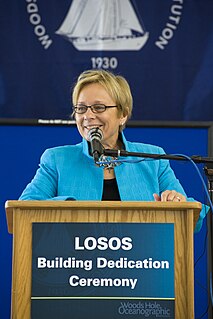Related Research Articles

Accounting or accountancy is the measurement, processing, and communication of financial and non financial information about economic entities such as businesses and corporations. Accounting is often referred to as "the language of business." The modern field was established by the Benedikt Kotruljevic in 1458, merchant, economist, scientist, diplomat and humanist from Dubrovnik (Croatia), and Italian mathematician Luca Pacioli in 1494. Accounting, which has been called the "language of business", measures the results of an organization's economic activities and conveys this information to a variety of users, including investors, creditors, management, and regulators. Practitioners of accounting are known as accountants. The terms "accounting" and "financial reporting" are often used as synonyms.

Generally Accepted Accounting Principles is the accounting standard adopted by the U.S. Securities and Exchange Commission (SEC). While the SEC previously stated that it intends to move from U.S. GAAP to the International Financial Reporting Standards (IFRS), the latter differ considerably from GAAP and progress has been slow and uncertain. More recently, the SEC has acknowledged that there is no longer a push to move more U.S companies to IFRS so the two sets of standards will "continue to coexist" for the foreseeable future.
Habilitation defines the qualification to conduct self-contained university teaching and is the key for access to a professorship in many European countries. Despite all changes implemented in the European higher education systems during the Bologna Process, it is the highest qualification level issued through the process of a university examination and remains a core concept of scientific careers in these countries.
The Doctor of Business Administration is a research doctorate awarded on the basis of advanced study, examinations, project work and research in business administration. The D.B.A. is a terminal degree in business administration. Along with the Ph.D. or D.Phil., it represents the highest academic qualification in business administration, and is typically required to gain employment as a full-time, tenure-track university professor or postdoctoral researcher in the field. As with other earned doctorates, individuals with the degree are awarded the academic title doctor, which is often represented via the English honorific "Dr." or the post-nominal letters "DBA" or "PhD".

Generally Accepted Accounting Principles (GAAP) of Canada provides the framework of broad guidelines, conventions, rules and procedures of accounting.
Marina von Neumann Whitman is an American economist, writer and former automobile executive. She is a Professor of Business Administration and Public Policy at the University of Michigan's Ross School of Business as well as The Gerald R. Ford School of Public Policy.

The Accounting Hall of Fame is an award "recognizing accountants who are making or have made a significant contribution to the advancement of accounting" since the beginning of the 20th century. Inductees are from both accounting academia and practice. Since its inception in 1950, it has honored 93 influential accounting professors, professional practitioners, and government and business accountants from the United States and other countries.
Ruth Wodak is an Austrian linguist, who is Emeritus Distinguished Professor and Chair in Discourse Studies at Department of Linguistics and English Language at Lancaster University. and Professor in Linguistics at the University of Vienna.

Sujatha Ramdorai is an algebraic number theorist known for her work on Iwasawa theory. She is a professor of mathematics and Canada Research Chair at University of British Columbia, Canada. She was previously a professor at Tata Institute of Fundamental Research.

Management accounting principles (MAP) were developed to serve the core needs of internal management to improve decision support objectives, internal business processes, resource application, customer value, and capacity utilization needed to achieve corporate goals in an optimal manner. Another term often used for management accounting principles for these purposes is managerial costing principles. The two management accounting principles are:
- Principle of Causality and,
- Principle of Analogy.
Accounting research examines how accounting is used by individuals, organizations and government as well as the consequences that these practices have. Starting from the assumption that accounting both measures and makes visible certain economic events, accounting research has studied the roles of accounting in organizations and society and the consequences that these practices have for individuals, organizations, governments and capital markets. It encompasses a broad range of topics including financial accounting research, management accounting research, auditing research, capital market research, accountability research, social responsibility research and taxation research.

Susan K. Avery is an American atmospheric physicist and President Emerita of the Woods Hole Oceanographic Institution (WHOI) in Massachusetts, where she led the marine science and engineering research organization from 2008-2015. She was the ninth president and director and the first woman to hold the leadership role at WHOI. She is Professor Emerita at the University of Colorado, Boulder (UCB), where she served on the faculty from 1982-2008. While at UCB she also served in various administrative positions, including director of the Cooperative Institute for Research in Environmental Sciences (CIRES), a 550-member collaborative institute between UCB and the National Oceanic and Atmospheric Administration (NOAA) (1994-2004); and interim positions (2004-2007) as vice chancellor for research and dean of the graduate school, and provost and executive vice chancellor for academic affairs. Currently she is a senior fellow at the Consortium for Ocean Leadership in Washington, D.C.
Rachel Toni Algaze Croson is an economist currently serving as Dean of the College of Social Science and MSU Foundation Professor of Economics at Michigan State University. She studies bargaining and negotiation as well as public goods provision, and uses experimental approaches to study management. She is known for her mentorship and advice to women in the economics profession, and was the 2017 winner of the Carolyn Shaw Bell Award from the Committee on the Status of Women in the Economics Profession.
Kristina Håkansson is an analytical chemist known for her contribution in Fourier transform ion cyclotron resonance (FT-ICR) mass spectrometry for biomolecular identification and structural characterization. Currently, she holds the position of Professor of Chemistry at University of Michigan. Her research focuses on mass spectrometry, primarily identification and characterization of protein posttranslational modifications by complementary fragmentation techniques such as electron-capture dissociation (ECD)/negative ion ECD (niECD) and infrared multiphoton dissociation (IRMPD) at low (femtomole) levels.
Patricia Anne Acquaviva Gabow is an American academic physician, medical researcher, healthcare executive, and consultant. Specializing in nephrology, she began lecturing in the department of medicine, division of renal diseases, at the University of Colorado School of Medicine in 1973, advancing to a full professorship in 1987; she is presently Professor Emerita. She was the principal investigator on the National Institutes of Health Human Polycystic Kidney Disease research grant which ran from 1985 to 1999. She served for two decades as CEO of Denver Health, an integrated public healthcare system in Denver, Colorado, where she implemented numerous business-based systems to streamline operations, improve patient care, and recognize cost savings. In particular, her introduction of the "lean" quality-improvement system, based on the Toyota Production System, earned her national recognition. She is the author of more than 150 articles and book chapters, and has received numerous awards for excellence in teaching, physician care, and leadership. She was inducted into the Colorado Women's Hall of Fame in 2004.

Senait Fisseha is a reproductive endocrinology and infertility academic at the University of Michigan and director of international programs at the Susan Buffet Foundation. Fisseha has a law degree and is known for her work as an advocate for global reproductive health, rights and gender equality. She is the founder of the Center for International Reproductive Health Training (CIRHT) at the University of Michigan. She chaired the election campaign of Tedros Adhanom, the first African Director General of the World Health Organization, in 2016-17.

Marcia Annisette is a Trinidadian-Canadian accounting academic at York University in Toronto. She is co-editor-in-chief of Accounting, Organizations and Society and Associate dean (students) at the Schulich School of Business. She is a former co-editor-in-chief of Critical Perspectives on Accounting. Her research looks at the social organization of the accounting profession, addressing issues of race, class, and nationality.

Christine Cooper is a British accounting academic. She holds a Chair in Accounting at the University of Edinburgh Business School and is co-editor-in-chief of Critical Perspectives on Accounting. Her research examines the economic, political and social impact of accounting.

Dr. Moudi A. Al-Humoud, is currently a professor of management at the College of Business Administration, Kuwait University. She served as president of Arab Open University, a pan Arab university operating in Kuwait, Kingdom of Saudi Arabia, Oman, Bahrain, Jordan, Lebanon, Egypt, Sudan and Palestine.
Raymond John Chambers, was an accounting academic who worked at the University of Sydney from 1953–1999. His research sought to provide an evidence-based reform of financial reporting and accounting practice and he is regarded one of the 20th century’s greatest accounting thinkers.
References
- ↑ Profile of Vivian Carpenter, Goliath Business News; www.goliath.ecnext.com.
- 1 2 3 Profile of Vivian Carpenter; www.bus.umich.edu; Retrieved 2009-11-17.
- ↑ As reprinted by the Social Science Research Network; Retrieved 2009-11-23.